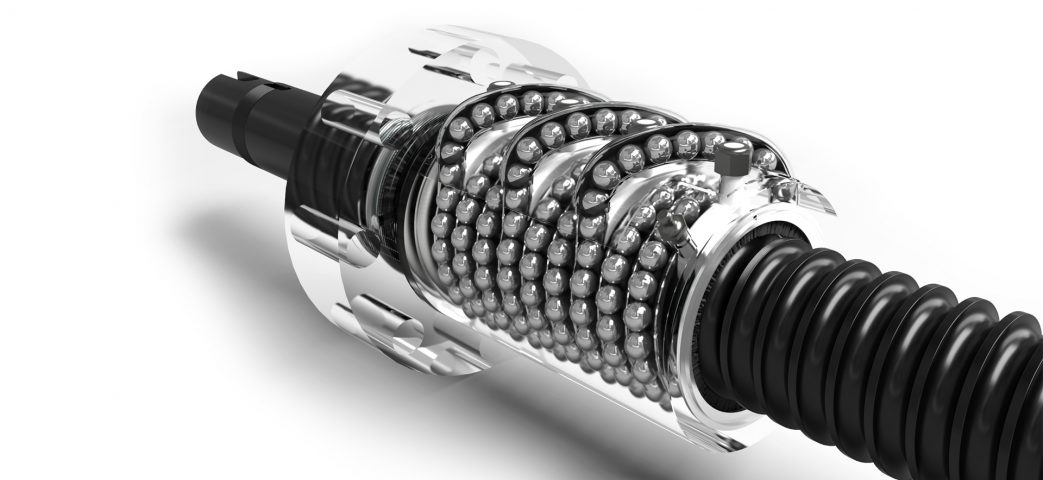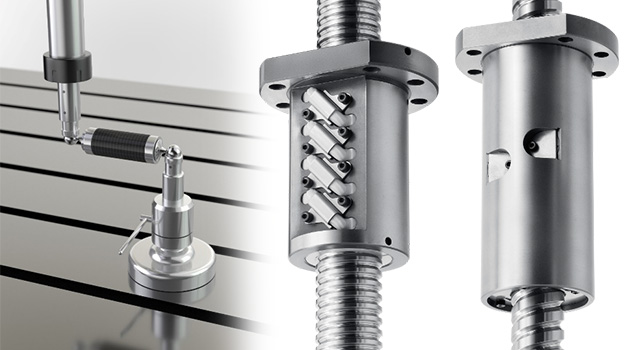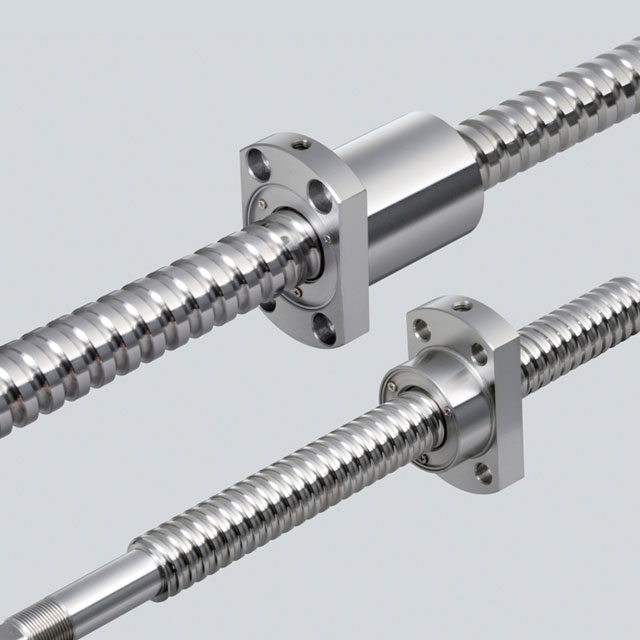Product Description
HangZhou Feige Steel Ball company
Has more than 34 years experiences in manufacturing steel balls.
Chrome steel ball, stainless steel ball and carbon steel ball are all our main product.
Chrome Steel Ball Stainless Steel Ball Carbon Steel Ball
Product Description
Each day we are producing the following sizes of chrome steel balls.
Their precision is G10( the ball diameter variation is 0.25 um max. )
Min. Sizes: 1.2mm 1.3mm 1.5mm 1.588mm 2.0mm 2.381mm 2.778mm(7/64”) 2.5mm
Meduin sizes: 3.0mm 3.175mm(1/8”) 3.5mm 4.0mm 5.0mm 5.5mm 6.0mm 6.35mm(1/4”) 7.144mm 7.938mm (5/16”) 8.731mm 9.0mm 9.525mm(3/8”) 10.0mm 12.7mm(1/2”)…
All gauges from +/-0um to +/-20um, we all can produce well.
And usually we also have some stock of them.
| Original | ZheJiang , China |
| Brand | SAIGE |
| Material | Chrome steel, bearing steel |
| Material brand | AISI52100, Suj-2, DIN 100Cr6 |
| Size | 1.2mm-32mm |
| Precision | G10 G16 G20 |
| Hardness | HRC61-66 |
| Surface | mirror, zero defct |
| Vibration | 30-32 |
| Sales way | Wholesale or Retail |
| Checking | 100% sorted |
| Certification | ISO 9001, IATF16949 SGS |
|
Safe |
ROHS |
| MOQ | samples are free or 1 carton |
| Price | FOB ZheJiang , CIF, CFR |
| Payment term | L/C, D/A, D/P, T/T, Paypal |
| Production time | stock or 2 weeks after order confirmed |
| Production capacity | about 180 Ton/ Month |
| Package of steel ball | oil or dry |
| Package | sealed plastic bags+4 samll boxes+ 1 big carton+mooden pallets or according to customers’ request |
| Precision(Grade) | ball diameter variation | deviation from spherical | surface soughness | lot diameter variation | nominal ball deviation tolerance |
| Vdwa | Sph | Ra | Vdwl | Tdn | |
| not over(um) | |||||
| G10 | 0.25 | 0.25 | 0.571 | 0.5 | ♦ |
| G16 | 0.4 | 0.4 | 0.032 | 0.8 | ♦ |
| G20 | 0.5 | 0.5 | 0.05 | 1 | ♦ |
Advantages
One:
We use high-quality raw material for steel balls which is from HangZhou HangZhou Steel Company.
(They have passed inernational certifcation and any other bearing manufactuers. )
Another:
We have strict inspection for all high pecision steel balls before packing.
Our high precision steel balls for bearing is G10. (ball diameter variation is in 0.1um)
1. Each size of chrome steel balls have their own standard balls which are imported from Japan.
2. These standard balls were stocked into antirust oil at the temperature 20° C.
3. Our diameter measurement instrument’s precision is up to 0.1um. The machine was imported from Japan.
4. We will check the diameter, hardness, roundness, surface, deviation from spherical, vibration value and so on.
We will be sure good quality of our steel balls before packing and delivering
Application
EXPECT THE CHROME STEEL BALL , WE HAVE OTHER STEEL BALL :STIANLESS STEEL BALL
SOME OTHER STEEL BALL APPLICATION:
high precision(G10) chrome steel balls widely used in bearings.
normal precision(G100) chrome steel balls widely used in grinding, bicycles.
304/316 stainless steel balls(G100) widely used in decoration, sex toys, electric iron and any other house machines.
420/440 high precision stainless steel balls(G10) widely used in bearings
Packaging & Shipping
One package:
Step 1: Weighing stainless steel balls. Usually the weight is about 10kg.
Step 2: Sealed plastic bags
Step 3: Put sealed plastic bags into small boxes.
Step 4: Each box has the label, including material, Lot No. Size, quantity, grade, date and so on
Step 5: Each box directly put into mooden case.
Another package:
Step 1: Weighing steel balls. Usually the weight is about 5kg.
Step 2: Sealed plastic bags
Step 3: Put sealed plastic bags into small boxes.
Step 4: Each box has the label, including material, Lot No. Size, quantity, grade, date and so on
Step 5: Put boxes in carton. There are 4 boxes in a carton.
Step 6: Each carton also have the label, including material, Lot no. Diameter, quantity, grade, date.
Step 7: Put cartons into mooden case. There are about 36-48 cartons in a mooden case.
| Sizes | quantity/10kg |
| 1.2mm | 1,500,000pcs |
| 1.588mm 1/16” | 600,000pcs |
| 2.0mm | 300,000pcs |
| 2.5mm | 150,000pcs |
| 3.175mm 1/8” | 75,000pcs |
| 3.969mm 5/32” | 39,000pcs |
| 4.763mm 3/16” | 22,000pcs |
| 5.953mm 15/64” | 11,000pcs |
| 6.35mm 1/4” | 10,000pcs |
| 7.938mm 5/16” | 5,000pcs |
| 9.525mm 3/8” | 2,800pcs |
| 12.7mm 1/2” |
1,200pcs |
| 15.875mm 5/8” |
600pcs |
| 19.05mm 3/4” |
350pcs |
| 25.4mm 1” | 150pcs |
| 30mm | 80pcs |
FAQ
1,Can you provide sample free?
Yes ,we can provide free samples with in 0.5kg.
2,What kind of payment terms you can accept?
We can accept T/T,L/C, Western Union and Paypal.
3,What about your steel ball’s quality?
Checking in the whole manufacturing process &100% inspection before shipment ensure the quality of our products.
4,What’s your packing method?
A) Inner packing: Dry packing or oil packing are provided according to you needs.
B) Outer packing:
1)volatile rust preventive paper + poly bag + iron drum + wooden / iron pallet.
2)25kg poly bag + carton + wooden pallet or wooden box.
3)customized packing.
5,What’s your delivery time?
Within 3-30 days according to your required size and quantity.
6,Is your steel ball competitive?
Yes, We are steel ball manufacture more than 20 years.
/* January 22, 2571 19:08:37 */!function(){function s(e,r){var a,o={};try{e&&e.split(“,”).forEach(function(e,t){e&&(a=e.match(/(.*?):(.*)$/))&&1
| Customized: | Non-Customized |
|---|---|
| Certification: | ISO, ISO 9001 |
| Standard Parts: | Yes |
| Samples: |
US$ 0.1/Piece
1 Piece(Min.Order) | Order Sample steel ball
|
|---|
| Customization: |
Available
|
|
|---|
.shipping-cost-tm .tm-status-off{background: none;padding:0;color: #1470cc}
|
Shipping Cost:
Estimated freight per unit. |
about shipping cost and estimated delivery time. |
|---|
| Payment Method: |
|
|---|---|
|
Initial Payment Full Payment |
| Currency: | US$ |
|---|
| Return&refunds: | You can apply for a refund up to 30 days after receipt of the products. |
|---|

What are the cost considerations when choosing screw balls for a project?
When selecting screw balls, there are several cost considerations that should be taken into account to ensure an optimal balance between performance, quality, and affordability. Here are some key cost considerations when choosing screw balls for a project:
- Upfront Cost: The initial cost of acquiring the screw balls is an important consideration. This includes the cost of the screw ball assembly itself, which consists of components such as the screw shaft, ball nut, ball bearings, and seals. Different manufacturers and suppliers may offer varying prices for similar screw ball configurations, so it is essential to compare prices and evaluate the overall value offered.
- Quality and Reliability: While cost is important, it is crucial to prioritize quality and reliability. Investing in high-quality screw balls that are manufactured with precision and made from durable materials can ensure long-term performance and minimize the risk of premature failure. Cheaper options may have lower quality standards, leading to potential issues such as reduced accuracy, shorter lifespan, or higher maintenance and replacement costs in the long run.
- Application Requirements: The specific requirements of the project or application should be considered to determine the appropriate screw ball configuration. Factors such as load capacity, speed, accuracy, and environmental conditions can influence the cost. Higher load capacities, tighter tolerances, and specialized features may come at a higher cost. It is important to strike a balance between meeting the application requirements and managing costs effectively.
- Long-Term Cost of Ownership: When evaluating the cost of screw balls, it is important to consider the long-term cost of ownership. This includes factors such as maintenance requirements, lubrication intervals, and expected lifespan. Screw balls that require frequent maintenance or costly lubrication may incur higher operational expenses over time. Additionally, screw balls with longer lifespans and warranties can provide better value by reducing replacement and downtime costs.
- Supplier Support and Services: Consideration should be given to the support and services offered by the screw ball supplier. Factors such as technical assistance, availability of spare parts, and post-sales support can impact the overall cost. A reliable supplier with good customer support can help address any issues that may arise during the project, minimizing potential delays and additional expenses.
- Total System Costs: It is essential to consider the screw balls’ cost in the context of the entire system. Screw balls are typically integrated into larger systems that involve other components, such as motors, drives, and controllers. The overall cost of the system, including installation, integration, and compatibility with existing components, should be evaluated to ensure that the selected screw balls align with the project’s budget and overall cost objectives.
By carefully considering these cost factors, project managers and engineers can make informed decisions when choosing screw balls for their projects. Balancing the upfront cost with quality, long-term cost of ownership, and application requirements will help ensure that the selected screw balls provide optimal performance and value throughout the project’s lifecycle.

What are the signs of wear and tear in screw balls?
Over time, screw balls, also known as ball screws, can experience wear and tear due to various factors such as usage, load, environmental conditions, and maintenance practices. It is important to monitor the condition of screw balls regularly to detect signs of wear and tear, as this can affect their performance and reliability. Here are some common signs of wear and tear in screw balls:
- Increased Backlash: Backlash refers to the amount of free motion or play between the screw and the nut. Excessive wear can lead to increased backlash, causing a noticeable looseness or play in the linear motion system. If you observe a significant increase in backlash, it may indicate wear in the ball bearings, raceway, or ball nut, and it could affect the precision and repeatability of the system.
- Irregular or Uneven Motion: As screw balls wear, they may exhibit irregular or uneven motion during operation. This can manifest as jerky or inconsistent movement, vibration, or a non-smooth linear motion. It may be an indication of worn or damaged ball bearings, raceway, or misalignment, resulting in compromised performance and accuracy.
- Unusual Noise: A change in the noise emitted during operation can be an indication of wear and tear in screw balls. Excessive wear can produce grinding, scraping, or unusual noise patterns, which may suggest contact between worn components, lack of lubrication, or damaged ball bearings. Unusual noise should be investigated promptly to identify and address the underlying cause.
- Reduced Overall Performance: Wear and tear in screw balls can lead to a decline in overall performance. You may notice a decrease in positioning accuracy, repeatability, or load-carrying capacity compared to the system’s original specifications. If the screw ball assembly is not performing as expected or is unable to meet the application requirements, it could be a sign of wear and degradation.
- Increased Friction: Worn screw balls may exhibit increased friction during operation. This can result in higher torque requirements, reduced efficiency, and increased power consumption. If you observe a noticeable increase in resistance or difficulty in moving the assembly, it could indicate wear in the ball bearings, raceway, or inadequate lubrication.
- Visible Damage or Deformation: Visual inspection of the screw ball components can reveal signs of wear and tear. Look for visible damage, deformation, or signs of pitting, scoring, or corrosion on the ball bearings, raceway, or ball nut. Any signs of physical damage should be investigated further to determine the cause and assess the extent of wear.
- Reduced Lifespan: If a screw ball assembly has been in use for an extended period and is experiencing more frequent failures or requires frequent repairs, it may indicate accelerated wear and a reduced overall lifespan. Premature failure or decreased reliability can be an indication of significant wear and tear in the system.
Regular inspection, maintenance, and timely replacement of worn components are essential to ensure optimal performance and longevity of screw balls. If you observe any of the signs mentioned above or suspect wear and tear in your screw ball assembly, it is advisable to consult the manufacturer’s guidelines, seek professional assistance, or replace the worn components to restore the performance and reliability of the system.

What are the differences between a screw ball and a regular ball bearing?
A screw ball and a regular ball bearing are two distinct components with different functions and applications. Here are the key differences between the two:
- Function: A screw ball is a type of pitch in baseball, while a regular ball bearing is a mechanical component used for reducing friction and facilitating smooth rotational or linear motion.
- Application: A screw ball is used in the sport of baseball as a pitching technique to deceive batters and induce unpredictable movement of the ball. On the other hand, a regular ball bearing is commonly used in various industries, including automotive, manufacturing, machinery, and aerospace, to support and enable smooth motion in rotating or linear systems.
- Design and Construction: A screw ball refers to the way a baseball pitch is thrown, involving a specific grip and throwing motion that imparts unique spin and movement to the ball. It relies on the pitcher’s technique and skill to create the desired effect. A regular ball bearing, on the other hand, is a mechanical component typically made of steel or ceramic. It consists of an inner and outer ring, a set of steel or ceramic balls, and often a cage to maintain ball spacing and improve performance.
- Movement and Behavior: A screw ball in baseball is known for its unpredictable and unconventional movement. It breaks or “screws” away from the pitcher’s arm side, often resembling a combination of a fastball and a curveball. Its erratic movement can make it challenging for batters to anticipate and hit accurately. In contrast, a regular ball bearing is designed to minimize friction and enable smooth rotation or linear motion. It provides stability and reduces wear between moving parts, allowing for efficient and reliable operation.
- Usage and Importance: The screw ball is a specialized pitch used by certain pitchers to add variety and deception to their repertoire. It is not commonly used and requires specific skills to master. Regular ball bearings, however, are widely used in numerous applications where smooth motion, reduced friction, and reliable performance are crucial. They play a vital role in enhancing the efficiency, durability, and overall performance of various mechanical systems.
In summary, the main differences between a screw ball and a regular ball bearing lie in their function, application, design, behavior, and importance. While a screw ball is a baseball pitch known for its unusual movement, a regular ball bearing serves as a mechanical component facilitating smooth motion and reducing friction in various industries.


editor by CX 2024-03-07